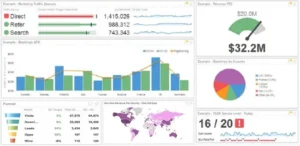Salesforce is crucial for many businesses looking to automate their customer relationship management (CRM), marketing, analytics, and other business processes. But when it comes time for Salesforce license renewal, businesses often find themselves overwhelmed by the complexity of options and the potential costs involved. Here are the top five suggestions you should consider when negotiating your Salesforce license renewal:

1. Start Early and Gather Metrics
The time to start thinking about Salesforce renewal isn’t a month before your contract ends; it’s at least 3-6 months prior. This gives you enough time to evaluate your current usage and needs. Collect metrics to demonstrate how Salesforce has added value to your organization or where it might fall short.
Having this data on hand gives you a strong negotiating position. You can show concrete results that Salesforce has provided and perhaps leverage those results for better terms.
2. Audit Your Current Saleforce Usage
Before you can negotiate, you need to understand what you’re currently utilizing and what you’re not. Often, licenses and features go unused or underused. Maybe you’ve been paying for Salesforce Pardot, but you’re not running any significant email marketing campaigns. Or perhaps you have more user licenses than you need.
Audit your current usage to identify what you require and what can be cut or scaled down. With this information, you can negotiate a contract that fits your needs, potentially reducing costs.
3. Understand the Salesforce Contract Pricing Model
Salesforce has a complex pricing model that includes various editions (Essentials, Professional, Enterprise, etc.), add-ons, and other scalable features. The costs can add up quickly if you don’t understand what you’re paying for. Before renewal, review the terms of your existing Salesforce contract, focusing on what each license and feature costs and what it provides.
Knowing your current contract well will enable you to discuss terms more intelligently and spot opportunities for savings, perhaps by bundling features or changing to a different edition that better suits your needs.
4. Leverage Your Relationship with Salesforce
If you’ve been a loyal Salesforce customer, don’t underestimate the value of that relationship. Vendors often have incentives or flexibility to offer better terms to loyal customers to keep them from switching to a competitor. Use your history as a negotiating point to ask for better rates or additional features.
Even if you’re a smaller customer, remember that customer retention is easier and more cost-effective for Salesforce than acquiring a new customer. Use this to your advantage during negotiations.
5. BONUS TIP~Leverage Salesforce’s Fiscal Year End
Understanding the timing around Salesforce’s fiscal year end can offer a strategic advantage during your license renewal negotiations. Salesforce, like many other companies, has sales quotas and targets to meet, which become especially pressing as the fiscal year comes to a close. This is usually around January 31st, but you should confirm the specific date as it may change.
During this time, Salesforce representatives might be more willing to offer discounts or additional services to close deals and meet their targets. Use this to negotiate more favorable terms or secure add-ons at a reduced rate.
However, this strategy comes with a few caveats:
- Plan in Advance. Even though there might be more flexibility from Salesforce near their fiscal year-end, you should start your negotiations well in advance. If you wait until the last minute, the representatives might be too busy closing more significant deals, leaving you with less attention and fewer negotiation options.
- Weigh the Pros and Cons. While fiscal year-end can provide some good opportunities, it’s not a guaranteed win. You’ll still need to be prepared, know your requirements, and clearly understand Salesforce’s pricing structure to make the most of the negotiations.
- Watch Out for Upselling. Be cautious of upselling tactics, especially as the fiscal year end approaches. Sales representatives may try to include additional services or add-ons to make their numbers, so ensure that any added features align with your business needs.
Understanding Salesforce’s fiscal year-end can be a solid tactical play in your overall negotiation strategy, but it should be one factor among many in your preparations.
Conclusion
Salesforce contract renewal doesn’t have to be a daunting process. By starting early, understanding your usage, knowing the pricing model, leveraging your relationship, and possibly consulting experts, you can negotiate a deal that meets your organizational needs without breaking the bank.







